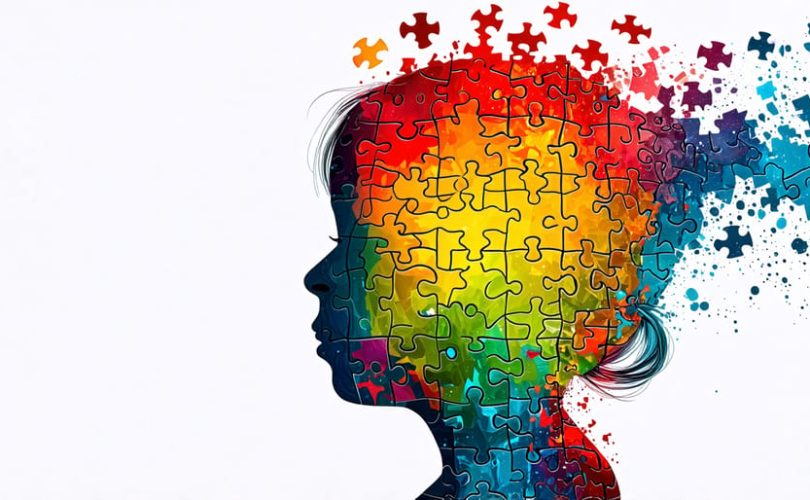Triggers a domino effect that shapes mental health, relationships, and physical well-being throughout life. Though the difference between trauma and stress can be subtle, the impacts of unresolved trauma run deep. From disrupted brain development and increased risk of addiction to trouble regulating emotions and forming healthy attachments, the effects are far-reaching. Yet with support, understanding, and evidence-based interventions, healing is possible. This article explores 7 key ways childhood trauma manifests in adulthood, offering insights to foster resilience and hope on the journey to wholeness.
Increased Risk of Mental Health Challenges
Early childhood trauma can have a profound and lasting impact on mental health, increasing vulnerability to various mental health challenges later in life. When a child experiences prolonged stress, abuse, neglect, or other adverse events during their formative years, it can alter brain development and shape how they respond to stress and regulate emotions. As a result, individuals with a history of childhood trauma are at higher risk for developing anxiety disorders, depression, PTSD, substance abuse issues, and other mental health conditions.
Trauma can disrupt the development of healthy coping mechanisms and lead to maladaptive behaviors that persist into adulthood. For example, a child who experienced emotional neglect may struggle with low self-esteem, difficulty trusting others, and a heightened sensitivity to rejection. These challenges can manifest as social anxiety, depression, or unhealthy relationship patterns later in life.
Moreover, the chronic stress associated with early trauma can lead to persistent activation of the body’s stress response system, which can have long-term effects on mental health. This constant state of heightened arousal can contribute to the development of anxiety disorders, panic attacks, and hypervigilance.
It’s important to recognize that while childhood trauma increases the risk of mental health challenges, it does not determine one’s destiny. With proper support, therapy, and resilience-building strategies, individuals can learn to manage their symptoms, heal from their past experiences, and lead fulfilling lives. By understanding the impact of early trauma on mental health, we can work towards creating a more compassionate and trauma-informed society that supports the well-being of all individuals, regardless of their background.

Difficulty Regulating Emotions
Childhood trauma can have a profound impact on emotional development, leading to difficulties regulating emotions and managing stress in adulthood. When children experience chronic stress or trauma during critical developmental stages, their brain’s emotional processing centers may not develop optimally. This can result in a heightened sensitivity to stress and a reduced ability to self-soothe or regulate intense emotions.
As adults, those who have experienced childhood trauma may struggle with emotional reactivity, often feeling overwhelmed by their feelings and unable to effectively cope with life’s challenges. They may have difficulty identifying and expressing their emotions, leading to a sense of emotional numbness or disconnection. Alternatively, they may experience intense mood swings, rapidly cycling between states of anger, sadness, or anxiety.
These emotional regulation challenges can manifest in various ways, such as difficulty maintaining healthy relationships, struggling with impulse control, or engaging in self-destructive behaviors as a means of coping. It’s important to recognize that these challenges are not character flaws but rather the result of the brain’s adaptation to early adversity.
However, it’s crucial to emphasize that healing is possible. With the right support, individuals can develop emotional resilience and learn effective strategies for managing their emotions. This may involve therapy, mindfulness practices, or other evidence-based interventions that help rewire the brain’s emotional pathways. By addressing the root causes of emotional dysregulation and building new coping skills, those who have experienced childhood trauma can cultivate a greater sense of emotional balance and well-being in adulthood.

Unhealthy Coping Mechanisms
Trauma survivors may turn to various unhealthy coping mechanisms in an attempt to numb their pain or escape the overwhelming emotions they experience. Substance abuse is a common issue, as individuals may use alcohol, drugs, or prescription medications to temporarily alleviate their distress. However, this can lead to addiction and further complicate their healing process. Self-harm, such as cutting, burning, or hitting oneself, is another destructive behavior that some trauma survivors engage in to cope with their emotional pain. They may feel a sense of control or release through these actions, but it ultimately perpetuates a cycle of harm and shame.
Eating disorders, such as anorexia, bulimia, or binge eating, can also develop as a way to cope with trauma. Survivors may use food restriction, purging, or overeating as a means to regain a sense of control in their lives or to numb their emotions. Other unhealthy coping mechanisms may include risky sexual behavior, gambling, or compulsive shopping. While these behaviors may provide temporary relief, they ultimately hinder the healing process and can lead to further harm.
It’s crucial for trauma survivors to seek professional help to develop healthy coping strategies and address the root causes of their pain. With proper support and treatment, individuals can learn to manage their emotions, build resilience, and work towards healing from their traumatic experiences. Remember, recovery is possible, and there is always hope for a brighter future.
Strained Relationships and Attachment Issues
Childhood trauma can significantly impact a person’s ability to form healthy, trusting relationships later in life. When a child experiences abuse, neglect, or other traumatic events, it can disrupt their attachment to caregivers and lead to attachment disorders. These disorders are characterized by difficulty forming close, secure bonds with others and may manifest as avoidance, clinginess, or erratic behavior in relationships.
Trauma survivors may struggle with trust, intimacy, and emotional regulation in their adult relationships. They may fear abandonment, have difficulty setting healthy boundaries, or oscillate between pushing others away and desperately seeking connection. Past trauma can also lead to a negative self-image and a belief that one is unworthy of love and support, further complicating relationships.
Moreover, trauma can cause hypervigilance and a heightened stress response, leading survivors to misinterpret neutral cues as threatening and react defensively. This can result in conflict and misunderstandings with partners, friends, and family members. Trauma survivors may also inadvertently seek out relationships that recreate the dynamics of their past, leading to a cycle of unhealthy or abusive partnerships.
However, with support, therapy, and self-awareness, it is possible for trauma survivors to heal and develop healthy, fulfilling relationships. By working with a compassionate therapist, survivors can learn to recognize and change unhelpful patterns, communicate their needs, and build trust and intimacy with others. With time and effort, it is possible to break the cycle of trauma and cultivate relationships that are safe, supportive, and nurturing.

Impaired Brain Development
Experiencing trauma during childhood can have profound and lasting effects on brain development. When a child faces prolonged stress, fear, or neglect, their brain adapts to prioritize survival over learning and growth. This can lead to changes in brain structure and function, particularly in regions involved in emotion regulation, memory, and executive functioning.
Children who have experienced trauma may struggle with attention, concentration, and learning in school. They may have difficulty retaining new information, following instructions, or completing tasks. These challenges can be mistaken for a lack of effort or intelligence, when in reality, they stem from the neurological impact of trauma.
Trauma can also affect the development of the hippocampus, a brain region essential for memory formation and retrieval. This can lead to gaps in memory, difficulty recalling positive experiences, and a heightened sensitivity to stress. Children may struggle to remember important information or have trouble distinguishing between past and present threats.
Furthermore, trauma can alter the way the brain processes and responds to emotions. Children who have experienced trauma may be more reactive to stress, have trouble regulating their emotions, and struggle with impulse control. They may be easily triggered by reminders of their trauma, leading to emotional outbursts or withdrawal.
It’s essential for parents, educators, and healthcare professionals to recognize the neurological impact of trauma and provide support and interventions that promote healing and resilience. This may include creating a safe and predictable environment, teaching coping skills, and providing trauma-informed therapy. With the right support, children can build new neural pathways, develop healthy coping mechanisms, and thrive despite their early adversity.
Increased Risk of Physical Health Problems
The profound impact of trauma extends beyond mental health, often manifesting in physical symptoms and chronic conditions. Research has shown a strong mind-body connection, with traumatic experiences elevating the risk of various health problems. Chronic pain, for instance, is a common complaint among trauma survivors. The constant state of hyperarousal and stress can lead to muscle tension, headaches, and widespread pain that persists long after the traumatic event.
Moreover, trauma has been linked to an increased likelihood of autoimmune disorders such as rheumatoid arthritis, lupus, and multiple sclerosis. The chronic stress associated with unresolved trauma can disrupt the immune system, causing it to mistakenly attack the body’s own tissues. This heightened inflammatory response may also contribute to the development of heart disease, as trauma survivors often exhibit higher rates of cardiovascular problems.
Digestive issues, such as irritable bowel syndrome (IBS), are another frequent concern for those who have experienced trauma. The gut-brain axis, a complex communication network between the digestive system and the central nervous system, can be significantly impacted by traumatic stress. This disruption can lead to a range of gastrointestinal symptoms and discomfort.
It is crucial for trauma survivors and their loved ones to recognize the potential physical health consequences and seek appropriate medical care. By addressing both the psychological and physiological aspects of trauma, individuals can work towards a more comprehensive healing process. Healthcare professionals play a vital role in providing trauma-informed care, which acknowledges the interconnectedness of mental and physical well-being.
Conclusion
The impacts of trauma can be heavy and far-reaching, affecting mental health, physical well-being, relationships, and neurological development well into adulthood. However, it’s crucial to remember that healing is possible. With the right support, resources, and therapeutic interventions, individuals who have experienced childhood trauma can process their experiences, develop healthy coping mechanisms, and lead fulfilling lives. If you or someone you know is struggling with the effects of trauma, know that you are not alone. Reaching out for help is a sign of strength and the first step towards healing. Seek support from loved ones, mental health professionals, or organizations dedicated to trauma recovery. Remember, healing is a journey, and every small step forward matters.







